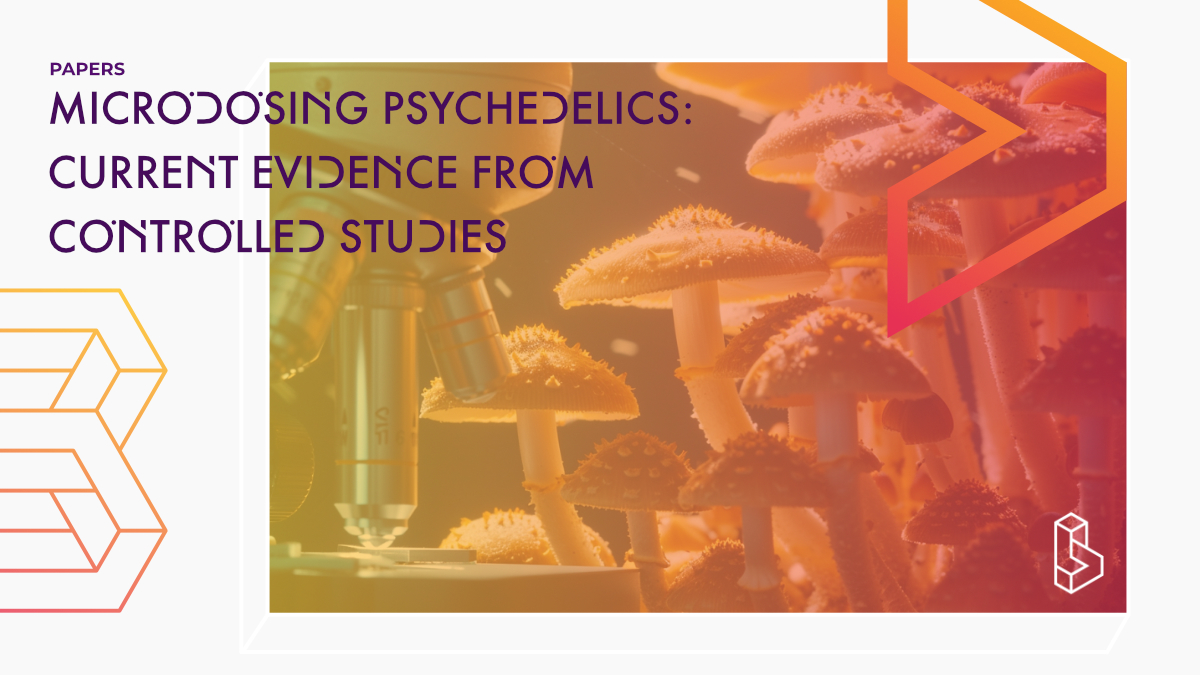This systematic review (s=14) compiles double-blind, placebo-controlled studies on microdosing LSD (5-20μg) under laboratory conditions. It reports that acute low doses of LSD affect blood pressure, sleep, neural connectivity, mood, social cognition, and perceptions of pain and time, with noticeable effects at 10-20 μg but not at 5μg. While no serious adverse effects were noted, repeated microdosing did not significantly change mood or cognition.
Abstract of Microdosing psychedelics: Current evidence from controlled studies
“Taking regular low doses of psychedelic drugs (microdosing) is a practice that has drawn recent scientific and media attention for its potential psychotherapeutic effects. Yet, controlled studies evaluating this practice have lagged. Here we review recent evidence focusing on studies that were conducted with rigorous experimental control. Studies conducted under laboratory settings using double-blind placebo-controlled procedures and investigator-supplied drug were compiled. The review includes demographic characteristics of the participants and dependent measures include physiological, behavioural, and subjective effects of the drug(s). Fourteen studies met the review criteria, all of which involved acute or repeated low (5-20 μg) doses of lysergic acid diethylamide (LSD). Acute microdoses of LSD dose-dependently altered blood pressure, sleep, neural connectivity, social cognition, mood, and the perception of pain and time. Perceptible drug effects were reported at 10-20 μg but not 5 μg. No serious adverse effects were reported. Repeated doses of LSD did not alter mood or cognition on any of the measures studied. The findings suggest that low doses of LSD are safe and produce acute behavioural and neural effects in healthy adults. Further studies are warranted to extend these findings to patient samples and to other psychedelic drugs, and to investigate microdosing as a potential pharmacological treatment for psychiatric disorders.”
Authors: Robin Murphy, Suresh Muthukumaraswamy & Harriet de Wit
Summary of Microdosing psychedelics: Current evidence from controlled studies
Microdosing psychedelic drugs is a medically unapproved practice that has been the subject of recent controlled trials. The review aims to describe the recent laboratory-based trials of microdosing psychedelics, to identify gaps in the literature, and to identify limitations in current methods to guide future research. A review of 14 papers was conducted on LSD clinical trials conducted by four laboratory groups. The papers report demographics, physiological, behavioural, and subjective effects of LSD.
Results
Find this paper
Microdosing psychedelics: Current evidence from controlled studies
https://doi.org/10.1016/j.bpsc.2024.01.002
Open Access | Google Scholar | Backup | 🕊
Cite this paper (APA)
Murphy, R., Muthukumaraswamy, S., & de Wit, H. (2024). Microdosing psychedelics: Current evidence from controlled studies. Biological Psychiatry: Cognitive Neuroscience and Neuroimaging.
Study details
Compounds studied
LSD
Topics studied
Microdosing
Study characteristics
Literature Review
Participants
308
Humans
Compound Details
The psychedelics given at which dose and how many times
LSD 0 - 20μg | 1x

